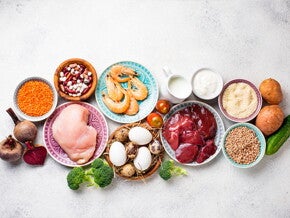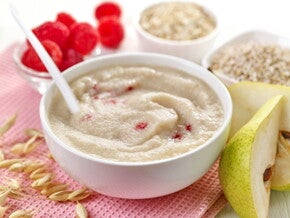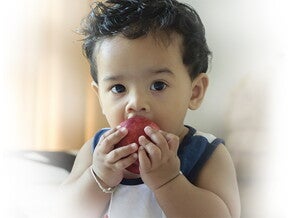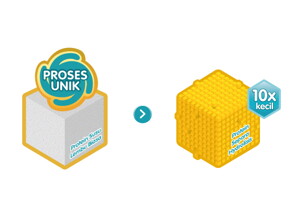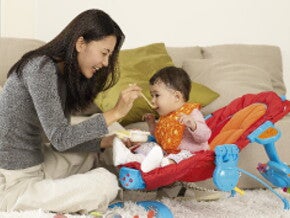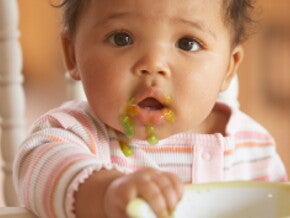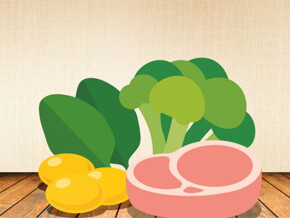
Bridging the Nutrition Gap
It’s important for your child to have a balance diet that’s nutrition filled during the transition to solid food.
It’s important for your child to have a balanced diet that’s nutrition-filled during the transition to solid food. Your child’s tummy is 5 times smaller than an adult’s but needs 5 times more nutrients, such as iron. In fact, the usual diets of some children may face a nutritional gap.1
At this stage, your child needs nutrient-dense food, rich in nutrients even when eaten in small amounts. So be sure to select nutrient-dense food such as meat, eggs, fish, milk & dairy products, vegetables, fruits and infant cereals. During this stage, you will need to start your child off with food that is easily digestible whilst providing the nutrition needed for healthy development. Home cooked food is always the best! When you’re introducing infant cereal as complementary food to your child, it is advisable to begin with infant cereal with a smooth texture to help your child adjust to a heavier diet.
Your child’s usual diet may need the extra nutrition to help support healthy growth. It should consist of key nutrients to support the introduction of solid foods. Provide your child with nutrients from a variety of foods in a balanced diet.
Some important nutrients that your child may need in his baby food include:
Iron
A nutrient needed to make haemoglobin, the oxygen-carrying component of red blood cells. High intake of key nutrients such as iron are important to support optimal growth and development. Without it, your child may be at risk of iron deficiency anaemia.
Zinc
Important for growth.
Vitamin A
Essential for the functioning of the eyes.
Vitamin C
Contributes to the absorption of iron from food.
These nutrients can come from a variety of sources, such as fruits, vegetables and even meat. One option of getting nutrition for your child is to try nutritious infant cereal; it’s easy to digest and nutrition-packed.
Big Nutrition for Small Tummies
One serving a day of baby food such as CERELAC Infant Cereals that is fortified with iron/high iron may help to reduce the risk of iron deficiency in your child. Each pack is formulated with important nutrients such as iron, zinc, vitamin A and vitamin C to help support your child’s growing needs. Each serving of CERELAC Infant Cereals (below 12 months) contains more than 50% of your child’s daily required intake of iron*2.
What’s more, baby food like CERELAC Infant Cereals comes in a selection of variants that your child will enjoy. From the simple yet delicious Rice to the wonderful Rice & Mixed Fruits, you can serve your child a meal that is delicious and nutritious.
*Malaysia RNI for Iron: 9mg/day for 6-11 months and 6mg/day for 1-3 year
References
1. Gibson RS, Hotz C, Perlas LA. Inuence of food intake, composition and bioavailability on micronutrient deficiencies of infants during the weaning period and the first year of life. In: Micronutrient deficiency during the weaning period and the first year of life. Pettifor JM, Zlotkin S (eds). Nestlé Nutr Workshop Ser Pediatr Program, 2004, vol 54, pp83-103.
2. NCCFN (2017). Recommended Nutrient Intakes for Malaysia. A Report of the Technical Working Group on Nutritional Guidelines. National Coordinating Committee on Food and Nutrition, Ministry of Health Malaysia, Putrajaya.








